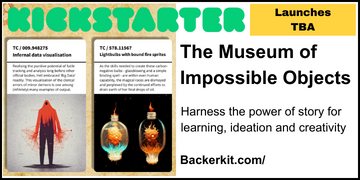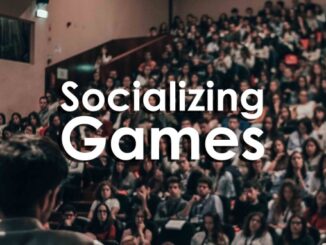
Ludogogy has entered into an agreement with Gamification Journal, based in Seoul, South Korea, for the mutual exchange of articles. This is the sixteenth of those articles we are publishing and it was in exchange for Corrado De Sanctis’ article on applying Agile practices to create an Agile serious game.
In early 2022, I was asked by various municipalities in Korea to advise on metaverse development. They wanted to make an impression by being at the forefront of the 4th industrial revolution. Their main question to the advisory board was ‘What is most important to consider in building the metaverse?” My answer was very simple. It’s the establishment of the basic concept that, ‘The Metaverse is the Game’.
However, they wanted to promote ‘usefulness’ by utilizing the metaverse for educational content. They wanted citizens attending classes in virtual classrooms, as avatars, to get the benefits of social education, recruitment and hobby learning. But most educational facilities already provided online lectures during COVID-19 period. Providing educational services through the metaverse maybe shows a lack of understanding of how the metaverse works.
Also, they already provided various services on their webpages, but they expected a metaverse presence to behave like a virtual reception for citizens to visit and interact with, via their metaverse personas.
The elected mayor wanted to give the impression that he had a deep interest in high-tech and AI, and to reflect that in the administration of the municipality – all with an eye on the next election. In the year 2022, ‘high tech’ related to the 4th industrial revolution, was all about blockchain-based NFT and the metaverse. As I think about the last year, business proposals just didn’t progress unless they mentioned NFT or the metaverse – in both the public or private sectors.
Gamification is essential to build the metaverse successfully
The Metaverse should be pitched as providing an online gamified playground for users. I want to take an example of a city simulation game and relate it to the municipality use case. City simulation games are already available and well-known like the ‘SimCity’ series developed by Electronic Arts. In this game, players create and develop the city, through a high-level simulation. If the city doesn’t operate well, the (virtual) citizens raise complaints, and even riot, leading to the mayor being kicked out. If an administrator in the role of mayor doesn’t deal well, it’s game-over.
SimCity is a game, but its tasks needs to be managed well, including city administration, welfare, safety, job creation, and environmental issues. If that is done, the city will be eco-friendly and all will be well. The purpose of this game is to make a livable city, increase the population, and manage the balance between development and welfare based on budget, finally working your way up to a large metropolis. The game is deployed in virtual space, but it looks real.
If the municipality develops its own twin in the metaverse, people can participate in city simulation games, which they will find out about through public announcements. The well-developed virtual city has real citizens residing in it as avatars. In the virtual city, avatars can rent a shopping space like in the real world to make commercial transactions. In the cinema or theatre, people can enjoy content through videos. I think that this is the ideal way to use the metaverse. Municipalities can apply the best of the virtual city to the administration of the real city. It’s a positive synergy because citizens can directly participate in city administration.
Our advanced technologies were already experienced at Cyworld, one of the oldest social platforms, about 20 years ago. It’s just a difference of expression. Now the trial period is over, and it’s subject to a fee. In the past, almost all online contents were free. Now, we are gradually paying fees for everything. Billing in chat GPT is the beginning of online billing. And to drive the interest that will encourage users to pay, good gamification is going to be essential.
- The Metaverse is the Game - 6th June 2023







Be the first to comment